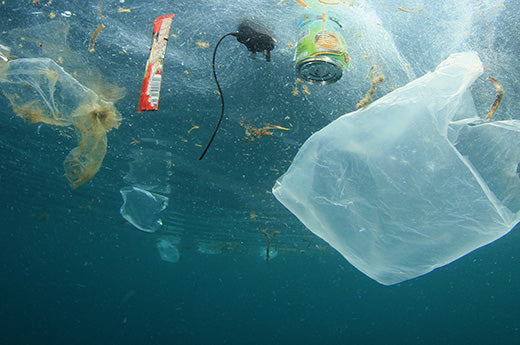Each year, around 300 million tons of plastic are produced. Of those 300 million tons of plastic, 14 million tons will end up in the ocean every year. Plastic pollution in the ocean affects all marine life, including coral reefs, sea turtles, whales, and fish.
The main reason why plastics are so hurtful to the ocean and earth is that they're forever. Plastics aren't biodegradable. Plastics only break down into smaller plastics known as microplastics, which still have an impact on the environment.
It's up to us to learn how to stop plastic pollution in the ocean. In the guide below, you'll find a few tips on how to prevent ocean plastic pollution. Continue reading to learn more!
1. Stop Buying Single-Use Plastics
Whether you live near an ocean or not, one of the easiest ways to reduce plastic pollution in our oceans is to stop buying and using plastics that you only use one time before throwing away. Some examples of single-use plastic are as follows:
- plastic water bottles
- plastic bags
- straws
- take-out containers
- utensils
- cups
To make a difference, you should begin replacing these single-use items with their reusable counterparts. You can find metal water bottles and straws that are both reusable. When shopping at the grocery store, you can bring your own reusable bags, which also hold more items in them than plastic ones!
You might also want to start bringing your own reusable cups and utensils to your favorite coffee spots and other restaurants to prevent the need for plastic cups and utensils. When you're unable to prevent using single-use plastic items, you can do your part by reusing them on your own at home.
Think of a few ways you can use plastic bags around the house and wash other items to reuse again.
2. Recycle When Possible
When you can't avoid using single-use plastic, you can make an initiative to recycle when possible. Any plastic items that can be recycled should go into your recycling bin. Recycling not only helps keep plastics out of the ocean but also prevents the need so as many new plastics to be produced.
Contact your local recycling center to determine what plastic items you're able to recycle. If you're not given a city recycling bin, then you can still recycle on your own. Create your own recycling bin and check with your city about where you can drop these items off.
3. Avoid Using the Worst Ocean Polluters
Although ocean plastic pollution is a major issue, there are many other items that pollute the oceans and beaches as well. Some common plastic and non-plastic items that make their way into the oceans are as followed:
- plastic food wrappers
- plastic food containers/bags
- plastic lids and plates
- cigarette butts
- bottle caps
To prevent these items from finding their way into the oceans, you should always toss items in trash or recycling bins, especially when visiting the beach. Before leaving the beach for the day, do a quick inspection of your area to ensure nothing's being left behind.
4. Don't Use Products Containing Microbeads
Many products used on a regular basis contain microbeads. Microbeads are very small pieces of solid plastic. You can commonly find microbeads in both cleaning and cosmetic products due to the microbeads' exfoliation properties and shelf life.
A few products commonly containing microbeads are as follows:
- sunscreens
- kinds of toothpaste
- body wash
- facial cleaners
- cosmetic products
Wastewater treatment centers have a difficult time trapping microbeads due to their size, so many of them end up in the oceans. What can you do to prevent this from happening? Read the ingredients on your products before using them and consider switching to natural or zero-waste personal care products.
5. Participate in Beach Cleanups
Local beach cleanups happen throughout the year. If you know of a beach cleanup happening in your area, then you can volunteer your time for it. You can also organize your own beach cleanups to ensure you do your part.
Cleaning up trash on the beach will prevent it from ending up in the ocean. To organize a well-put-together cleanup, you should first consider a few things.
- choose a specific cleanup location
- gather containers and other supplies for putting trash in
- contact local municipalities for donations towards the cleanup
- have a plan in place for what to do with the trash picked up
- create an event online and find volunteers
Organizing a beach cleanup that's well thought out will take some time, but your efforts will have great results.
6. Support Local Organizations
You can find several amazing organizations in your area with a focus on cleaning up the oceans. Conduct a quick internet search to find a few near you or ones you can donate to online. Once you find an organization you want to support, you can do so in a few ways.
- donate to the cause
- volunteer or join the organization
- purchase the merchandise for sale
- spread the word using social media platforms
Don't hesitate to reach out to these organizations to ask what the best way to support them is.
How to Stop Plastic Pollution in the Ocean
Let's reduce the impact of plastic pollution in the ocean together! Interested in learning how to stop plastic pollution in the ocean effortlessly?
At Everything Manatee, a portion of our profits goes towards various charities that help the manatees and oceans worldwide. Browse through our collection of men's, women's, and home items to find a purchase you love.
You can also choose to donate to the cause and protect what you love!

